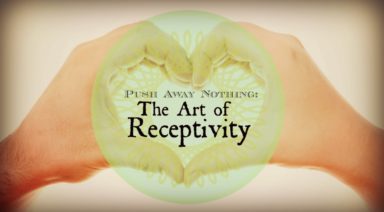Find a Blissful Moment Every Day

What is bliss? The dictionary has two definitions for bliss. The first is: perfect happiness; great joy. The second is: something providing such happiness.
First of all, happiness starts from within, but a few simple things, done every day, do help. Blissful moments are different for everyone. Here are mine:
1. My morning cup of coffee. The moment I wake up, I look forward to my cup of coffee. Why? It is such a simple thing: hot liquid in a cup. To me, it is so much more. My senses awaken every time I hold a cup of coffee. The cup warms my hands which are always cold (even in the summer). The warm liquid is smooth, creamy and delicious. The smell of fresh brewed coffee reminds me to be thankful for being alive and to cherish these simple moments. I close my eyes and I am in the “now.” I focus on all the happy sensations this one simple beverage does for me. Then all of a sudden, the cobwebs evaporate from my foggy brain and I am able to start my day as a happy, content and grateful human being.
2. Meditation. I must meditate daily. My mind takes me on a turbulent ride and if I don’t sometimes get off, just like in Thelma and Louise, my “car” will drop off a cliff. I keep saying there is something wrong with my brain, but I am told otherwise. Perhaps other people feel the same as I do… it is nice to know that I am not alone. Meditating slows down that ride to a nice Sunday jaunt. I meditate in the morning with the aid of an app downloaded to my tablet. It is time specific and a beautiful ringing bell sounds as the meditation counts down. I close my eyes and my thoughts race, but every time I hear the bells I return to the moment quickly and easily. I have found that meditation has made me feel happier. I am able to handle the stressful moments in my day easier. I also look at people differently because I am not judging them or criticizing them if they take their anger out on me. I just remember that they are having a bad day and try not to take it personally. Meditating calms my mind so that I can let go of external conflicts and put my mind at ease.
3. Driving home from work. This is the time I take to relax and prepare to finish my day on a good note. If you don’t like your commute, find something that you enjoy doing that you can incorporate into your drive or train ride. Listen to the radio and focus on how the songs make you feel. Listen to a motivational CD and focus on improving yourself. If you are taking the train, read a good book, take a nap or make conversation with the person next to you. Everybody has a great life story to tell. If you are constantly stuck in traffic, or the train is late, take those moments to focus on the “now” and enjoy “being.” Don’t focus on the negative. Try turning this moment into something positive: a time to meditate and focus on your breath. Learn to enjoy the moment instead of indulging the negative emotions building up inside of you. Once you arrive at your destination you will no longer feel agitated or angry, but more focused and able to get on with your day in a positive mood. If you are arriving home after work, you will be able to greet your family in a happy mood.
4. Brushing my teeth and washing my face before going to bed. That simple everyday activity is both calming and soothing. As the electric toothbrush whirls, I focus on the positive aspects of my day and let go of the experiences that weren’t so great. I focus on the day’s events that I am grateful for and cherish those moments. When I am done brushing my teeth, my mouth feels fresh and clean. Next I wash my face. The suds erase all the impurities. My face feels tingly and I am left with a clean slate. I am ready to do it all over again the next day.
Your blissful moments could be different from mine. Perhaps when you come home, you get to greet the pet you’ve missed terribly all day. Other blissful moments could include: cooking a great meal, working out, talking to some friends on the phone, or doing yoga to alleviate some stress. Pick your blissful moments and make them count each and every day.
This is what life is about. Simple, blissful moments.
What is an Empath? An Absorbent, Intuitive, Emotional Warrior

As an open-hearted and whimsical little boy, I wish this question had dawned on me sooner, “What is an Empath?” Given all the experiences that sensitive children tend to endure, I wish someone had taught me about my nature during childhood, instead of plopping it into my lap when I was a meandering adult. My boyhood battles were hard fought and rarely won. The lessons throughout the years seemed to point to one thing: I had no idea I was an Empath.
Are You An Empath?
I remember the day someone asked me that question. I was 30 years old, sitting on a beach in California, holding a friend’s hand. I felt so badly for her broken heart that I cried with her. When she asked me that very potent question, my tears turned inward, where I immediately found a beautiful and profound clarity. At that moment, I knew I was an Empath. I was free.
In the years to come, I could not only feel the feelings of others; I could see the possible trajectories in their lives. On several occasions, I took on my client’s physical attributes, including the temporary appearance of track marks on my arms when doing a session for a former heroin addict.
Yes, being an Empath can be intense.





































